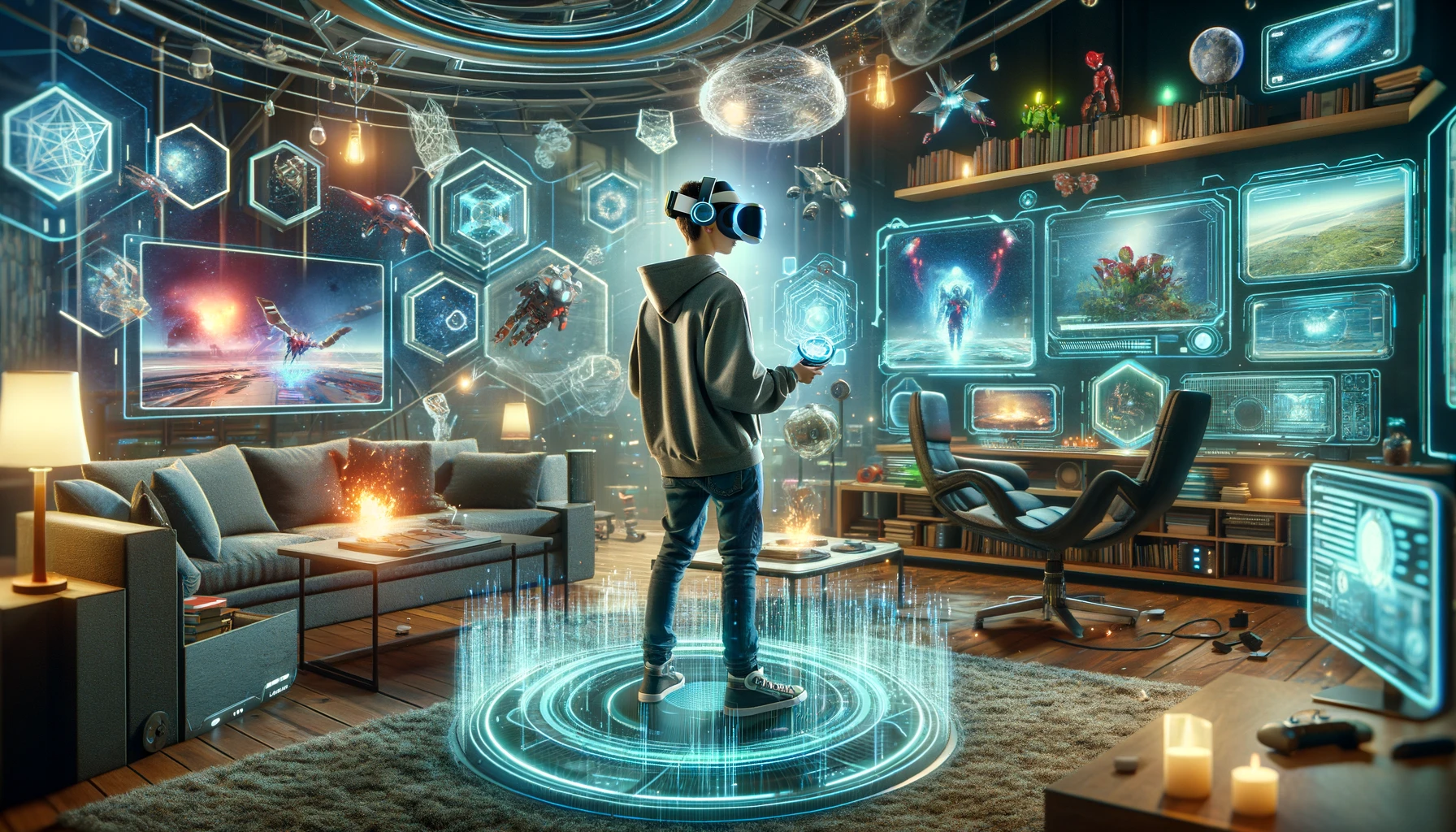
The Future of Video Games
As we look ahead into the next decade, the landscape of video gaming is set to transform in ways we can only begin to imagine. The rapid advancements in technology and shifts in consumer behavior point towards an exciting, immersive, and highly interconnected future for the gaming industry.
Virtual Reality (VR) and Augmented Reality (AR): The integration of VR and AR into gaming is expected to deepen. These technologies promise to blur the lines between the virtual and real worlds, creating more immersive experiences. We can anticipate games that not only simulate environments but also overlay digital information onto the real world, making gaming more interactive and engaging.
Cloud Gaming: Cloud gaming is set to democratize access to games, removing the need for expensive hardware and allowing players to stream games directly to their devices. This technology will enable gamers to play any game, on any device, anywhere, without worrying about hardware limitations.
Artificial Intelligence (AI): AI's role in gaming is becoming more sophisticated. From creating more realistic NPCs (Non-Player Characters) to developing dynamic storylines that adapt to player choices, AI is on the verge of fundamentally changing game design and player interaction.
E-sports and Social Gaming: E-sports continue to rise, transforming gaming into a spectator sport that rivals traditional sports in popularity and revenue. Social gaming is also expanding, with games increasingly designed for connectivity, allowing people to come together, form communities, and share experiences in virtual spaces.
Game Development and Distribution: The barriers to game development and distribution are lowering, thanks to platforms like Unity and Unreal Engine. These tools make it easier for indie developers to create and distribute games, ensuring a more diverse range of games in the market.
Sustainability in Gaming: As the environmental impact of gaming becomes more apparent, the industry is moving towards more sustainable practices. This includes reducing the energy consumption of gaming devices, using sustainable materials in hardware, and promoting digital downloads over physical copies.
Personalized Gaming: With advancements in data analytics and machine learning, games of the future will increasingly be tailored to individual players. Personalized gaming experiences could adjust in real-time based on player performance and preferences, enhancing engagement and satisfaction.
Regulatory Challenges: As gaming becomes more pervasive, it will also face more scrutiny and regulation. Issues like data privacy, cybersecurity, and content regulation will become increasingly important, shaping how games are developed and played.
Conclusion: The future of video games is rich with potential. As we stand on the brink of new technological revolutions in VR, AI, and cloud computing, the next generation of games will be more immersive, inclusive, and intense than ever before. This evolution will not only redefine entertainment but also challenge our perceptions of what games can be.
Excited for what’s coming next in the world of gaming? Stay tuned, because the next level is just around the corner.